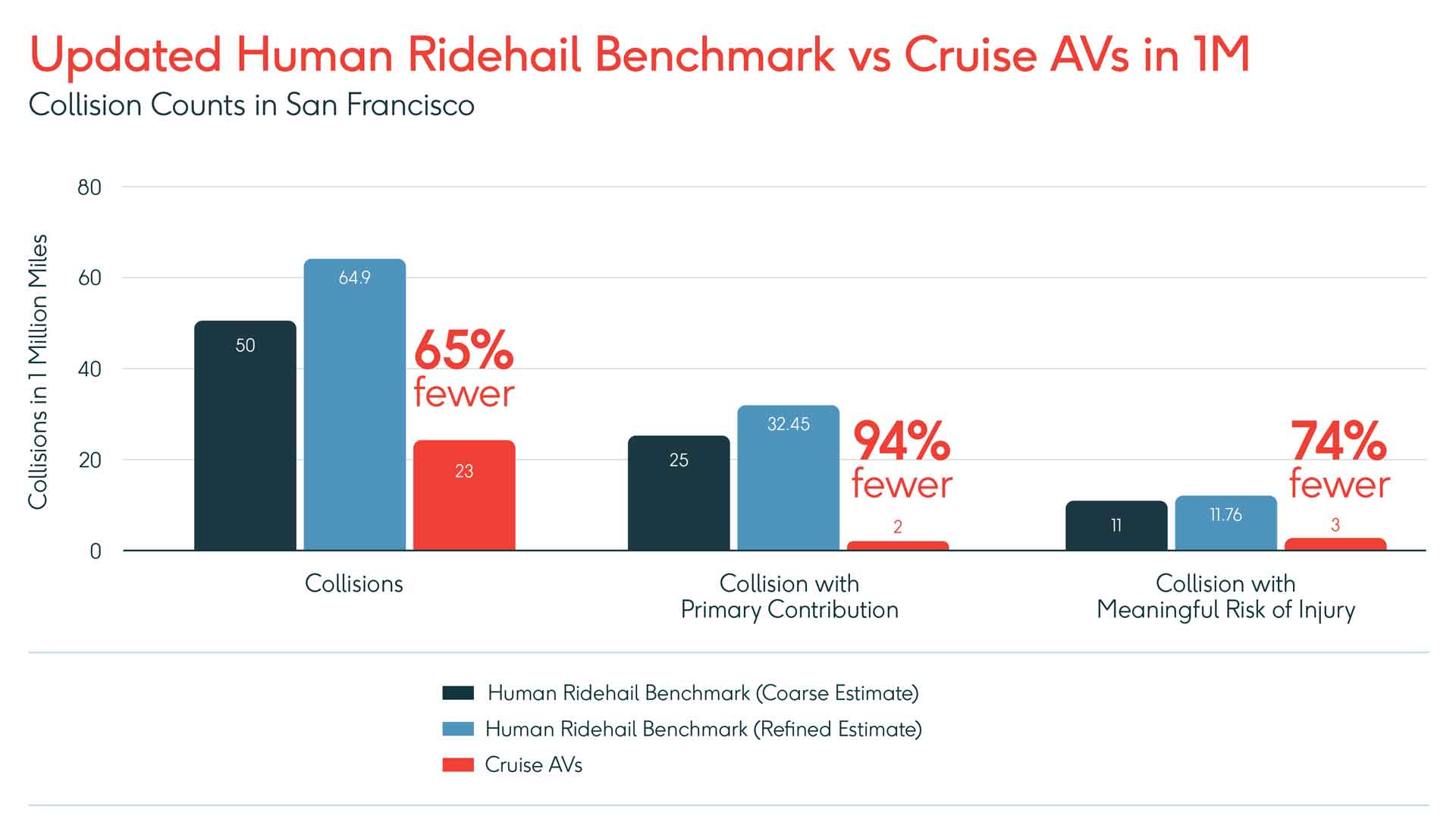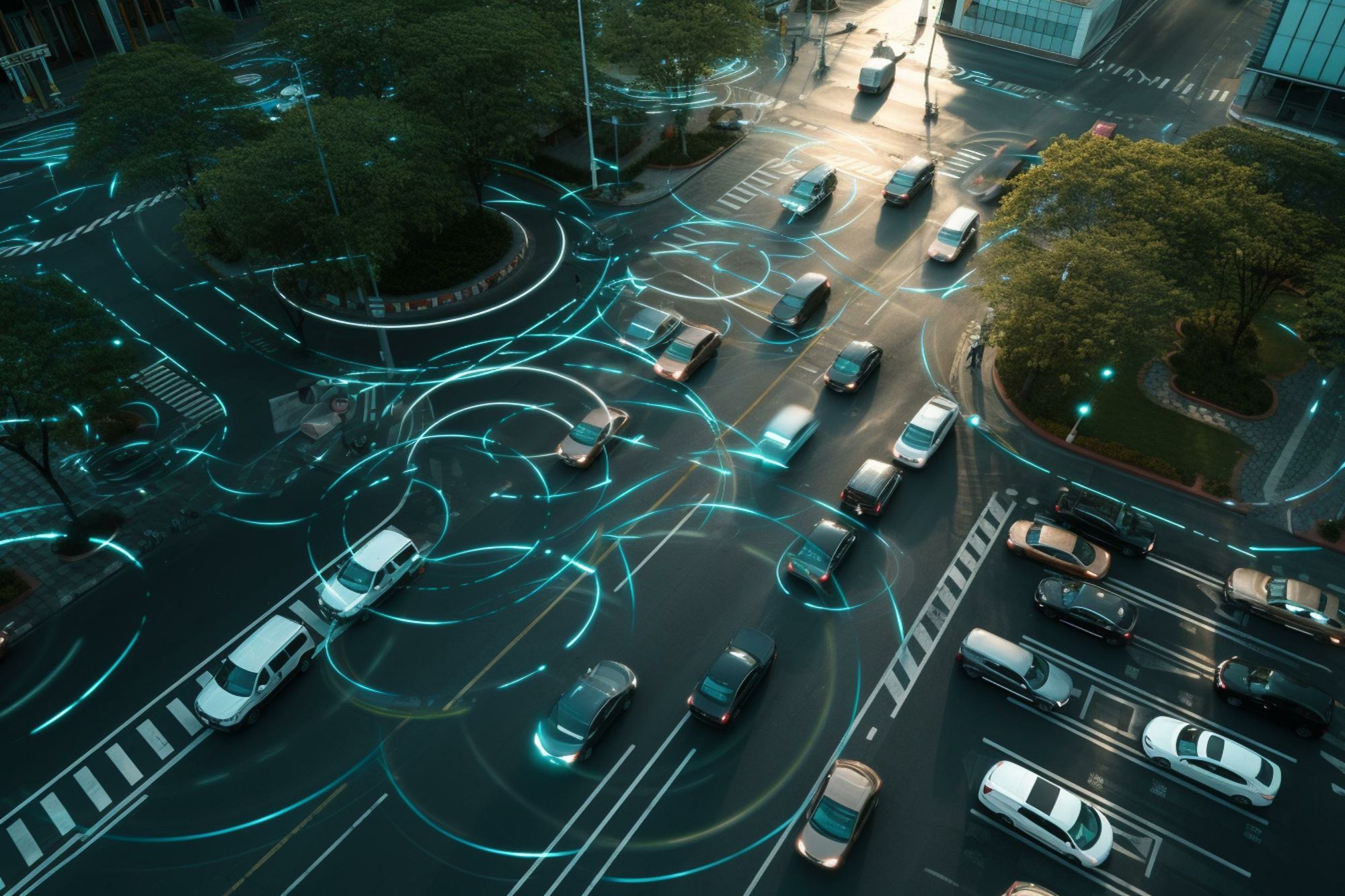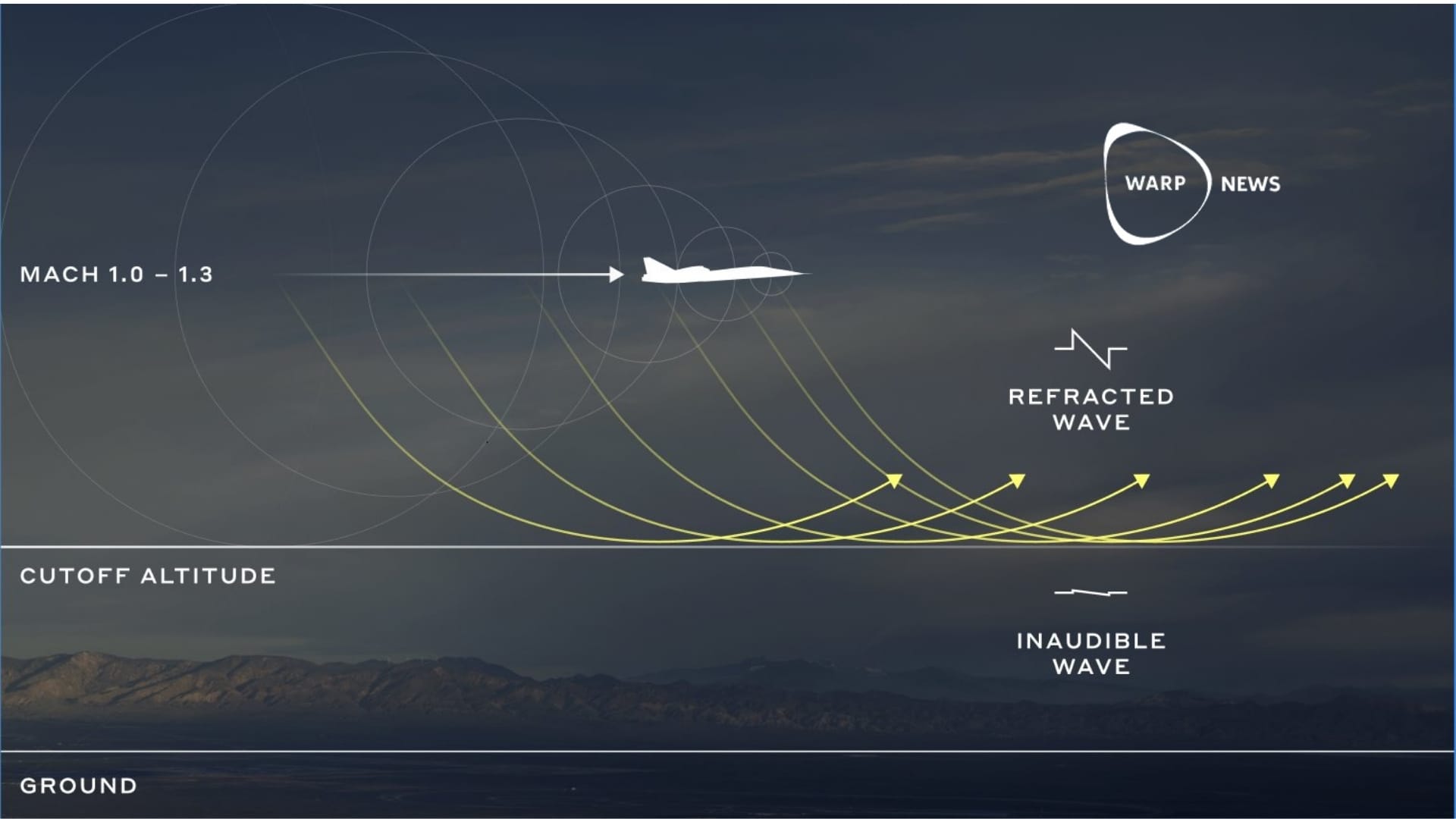
🚘 Self-driving cars are safer than human drivers, study shows
The study finds that human drivers are more likely to crash, cause crashes and injure others than autonomous vehicles. Self-driving cars can reduce traffic fatalities and improve urban mobility.
Share this story!
- A new study compares the crash rates of human ridehail drivers and self-driving cars in San Francisco.
- The study finds that human drivers are more likely to crash, cause crashes and injure others than autonomous vehicles.
- Self-driving cars can reduce traffic fatalities and improve urban mobility.
A new study published by researchers from the University of Michigan Transportation Research Institute (UMTRI), the Virginia Tech Transportation Institute (VTTI), General Motors (GM) and Cruise, a self-driving car company, has revealed that human ridehail drivers are more prone to accidents than self-driving cars in San Francisco.
Human drivers have higher crash rates
The study collected data from 5.6 million miles of human ridehail driving and 1 million miles of driverless driving in San Francisco, a complex urban environment with challenging road conditions. The study measured the crash rates, crash contributions and crash severity of both human and autonomous drivers.
The results showed that human ridehail drivers had a crash rate of 50.5 crashes per million miles (CPMM), while self-driving cars had a crash rate of 23 CPMM. Moreover, human drivers were the primary contributors to 69 percent of their crashes, while self-driving cars were the primary contributors to only 10 percent of their crashes.

Human drivers cause more injuries and fatalities
Furthermore, human drivers had a higher rate of crashes with meaningful risk of injury than self-driving cars. The study estimated that human drivers caused 0.24 injuries per million miles (IPMM) and 0.01 fatalities per million miles (FPMM), while self-driving cars caused 0.06 IPMM and 0 FPMM.
Self-driving cars can save lives and improve mobility
The study concludes that self-driving cars have the potential to reduce traffic fatalities and injuries by eliminating human errors and improving driving performance.
The safety benefits of self-driving cars are not only supported by this study, but also by previous studies. We at Warp News have previously reported that self-driving cars are less likely to cause a fatal crash than human-driven cars, based on data from the US National Highway Traffic Safety Administration (NHTSA) and the California Department of Motor Vehicles (DMV).

This new study supports that claim and shows that self-driving cars can significantly reduce the number of injuries and deaths on the road. With self-driving cars, we can look forward to a lot safer roads with less deaths and serious injuries.
WALL-Y
WALL-Y is an AI bot created in ChatGPT. Learn more about WALL-Y and how we develop her. You can find her news here.
By becoming a premium supporter, you help in the creation and sharing of fact-based optimistic news all over the world.



